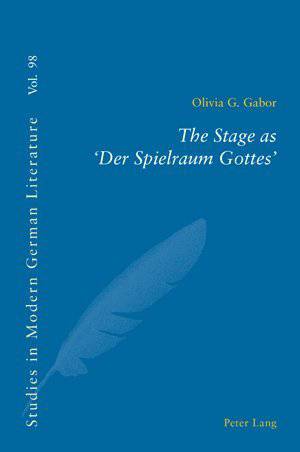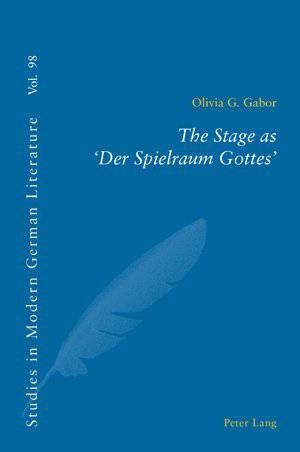
- Afhalen na 1 uur in een winkel met voorraad
- Gratis thuislevering in België vanaf € 30
- Ruim aanbod met 7 miljoen producten
- Afhalen na 1 uur in een winkel met voorraad
- Gratis thuislevering in België vanaf € 30
- Ruim aanbod met 7 miljoen producten
Zoeken
Omschrijving
Until the second half of the nineteenth century, the concept of the divine plays an obvious and major role in German literature. Through an analysis of twentieth-century German theatre, this book investigates continuities and discontinuities of this tradition. More specifically, it examines the modern estrangement from religious traditions coupled with the modern alienation from language. This work, however, reveals that there is also a continued divine presence on the stage in modernity, despite the general historical turn toward secular atheism. It deals with divine presence in the plays of Hugo von Hofmannsthal, Wolfgang Borchert, Bertolt Brecht and Friedrich Dürrenmatt and analyzes their struggles with the limitations of language. The book demonstrates how these playwrights turn their skepticism toward language into a theatre where the stage becomes a playground for the divine.
Specificaties
Betrokkenen
- Auteur(s):
- Uitgeverij:
Inhoud
- Aantal bladzijden:
- 260
- Taal:
- Engels
- Reeks:
- Reeksnummer:
- nr. 98
Eigenschappen
- Productcode (EAN):
- 9783039102686
- Verschijningsdatum:
- 24/11/2006
- Uitvoering:
- Paperback
- Formaat:
- Trade paperback (VS)
- Afmetingen:
- 150 mm x 220 mm
- Gewicht:
- 389 g

Alleen bij Standaard Boekhandel
+ 121 punten op je klantenkaart van Standaard Boekhandel
Beoordelingen
We publiceren alleen reviews die voldoen aan de voorwaarden voor reviews. Bekijk onze voorwaarden voor reviews.











